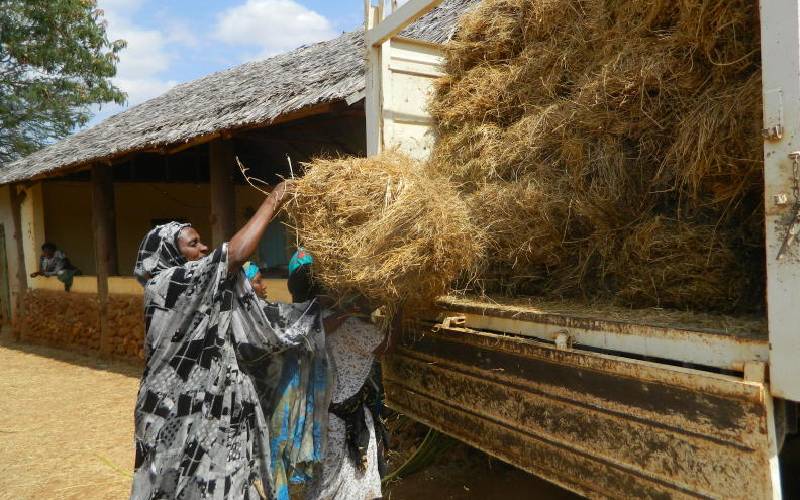
Members of Malka Bisanadi from Kinna location, Garba-Tula sub-county in Isiolo grow and sale fodder crops to NGOs. [Ali Abdi,Standard]
Demand for more resources to arid and semi-arid counties is at the heart of the political realignment in North Eastern. Two formations have since emerged amid scramble for the more than a million votes in the region by Deputy President William Ruto and ODM leader Raila Odinga. Clan politics and negotiated democracy are also likely to chart the direction the region will take in President Uhuru Kenyatta’s succession race.